How’d you spend your summer? For AMC’s research interns, it was a busy season. Working alongside professional scientists, interns took on big projects essential to AMC’s conservation mission, from collecting data deep in the backcountry to educating the public on community science.
“AMC research interns are the boots on the ground for our stream, lakes, and plant monitoring in the Maine and New Hampshire mountains,” says AMC Staff Scientist Georgia Murray.
“I enjoy mentoring them as budding field scientists and learning from their curiosity and fresh perspectives.”
Here’s just some of what our AMC research interns accomplished, in their own words and pictures.
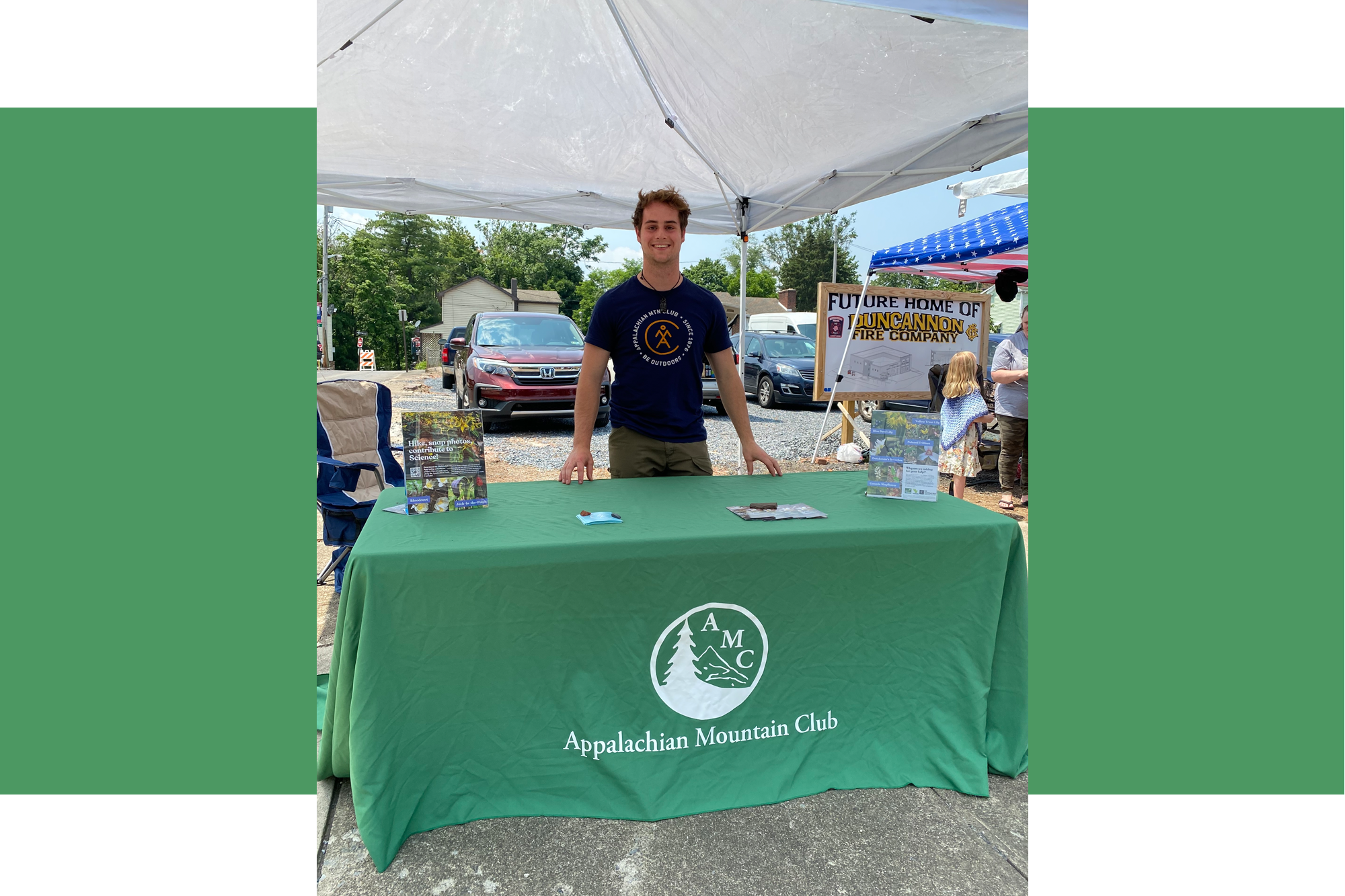

Bruce DiNardo educates the public about iNaturalist. Courtesy of Bryce DiNardo.
Bryce DiNardo
Scientist in Parks Intern
For the summer I am one of AMC’s Scientist in Parks interns working on the Appalachian Trail iNaturalist project. This project uses crowdsource data from iNaturalist of understory plants throughout the entire A.T. to study environmental and climate change on plant phenology. The project involves engaging with the public and conservation groups to inform them about the project and how they can get involved. Additionally, I synthesize new iNaturalist data to update the Appalachian Trail iNaturalist Report.
This project will help us not only understand the flora along the A.T. corridor but also give people a chance to use the iNaturalist app, making plant and animal ID more accessible. Giving people the chance to learn about their surrounding environment while also contributing to local science. Hopefully, this experience will lead the user into a deeper and more meaningful connection to their natural world.
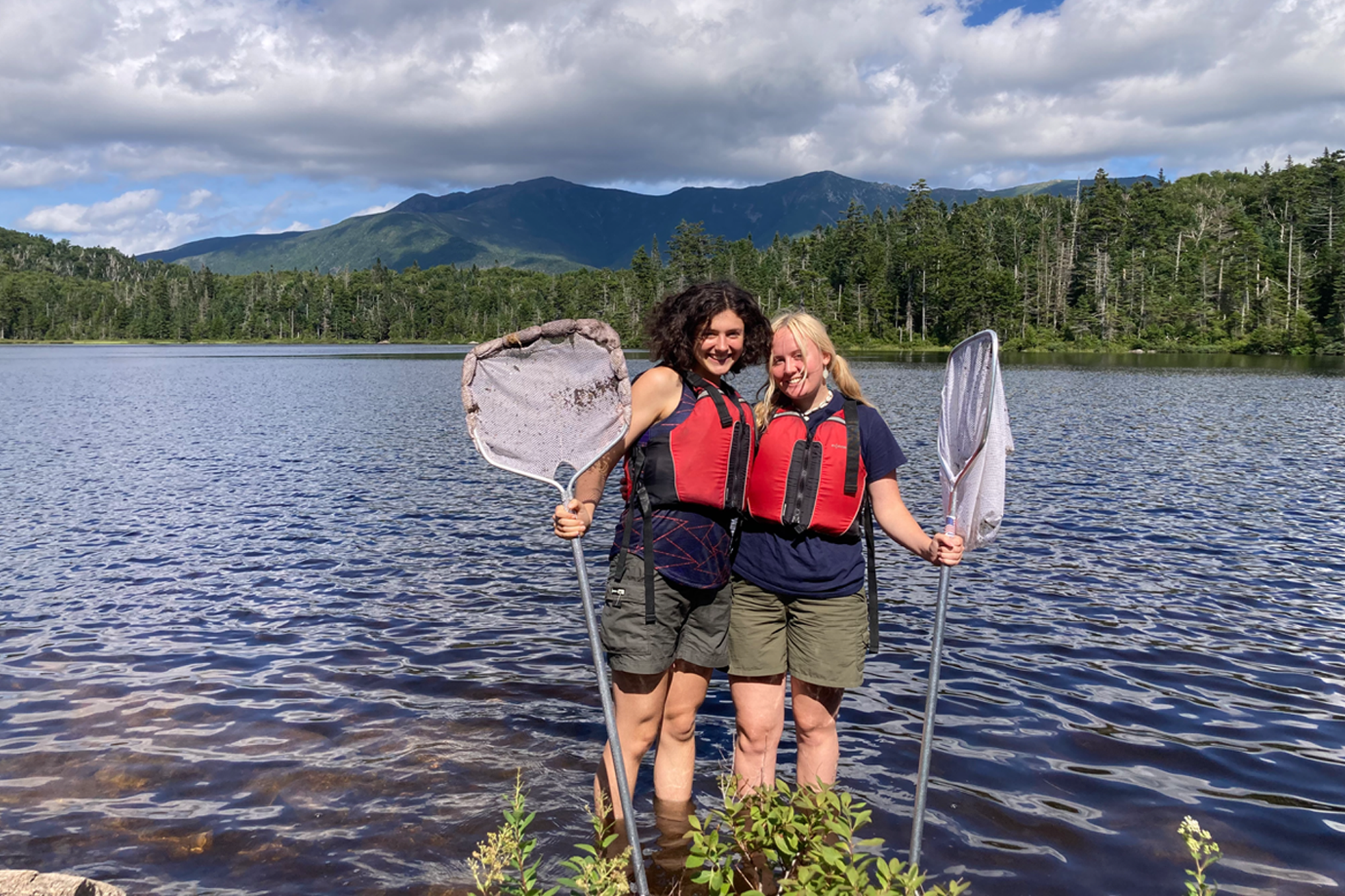

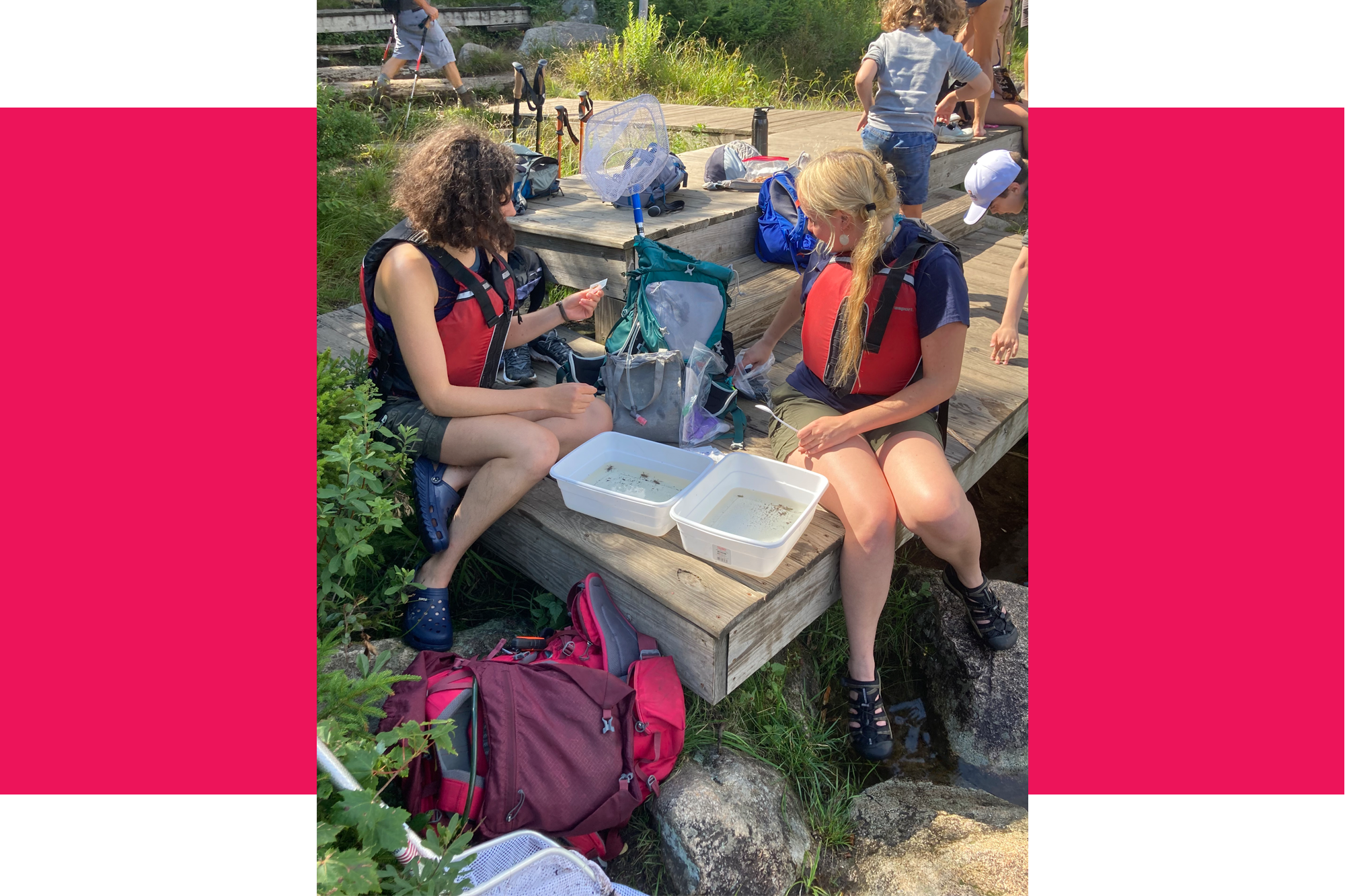

(Left to Right) Maya Shyevitch and Isla Lyons. Courtesy of Isla Lyons.
Isla Lyons
Dragonfly Mercury Project Intern, Pinkham Notch
I am researching mercury levels in the White Mountain National Forest (WMNF) using dragonfly larvae as biosentenels, or indicators of mercury in the ecosystem. This is part of a national project testing mercury in all National Parks. I sampled four sites in the WMNF this summer with the help of many citizen scientists’ groups, forest service staff, and AMC staff.
The pictures above are from Lonesome Lake, where Maya Shyevitch, the base research intern at Pinkham Notch, and I sampled for larvae and water samples, which will be tested for mercury and PFAS levels in the coming year! This is important to look into because mercury is a globally distributed contaminant that can harm human and wildlife health. In its toxic methylated form, mercury bioaccumulates build up in aquatic and terrestrial food webs. Due in part to emissions from coal-burning power plants, even remote national forests receive mercury deposits from the atmosphere.
The WMNF has six million visitors annually and is the perfect place to engage citizen scientists in the Dragonfly Mercury Project. Empowering people who visit to foster a connection to all living things and understand the influence humans have upon the natural systems we live in.
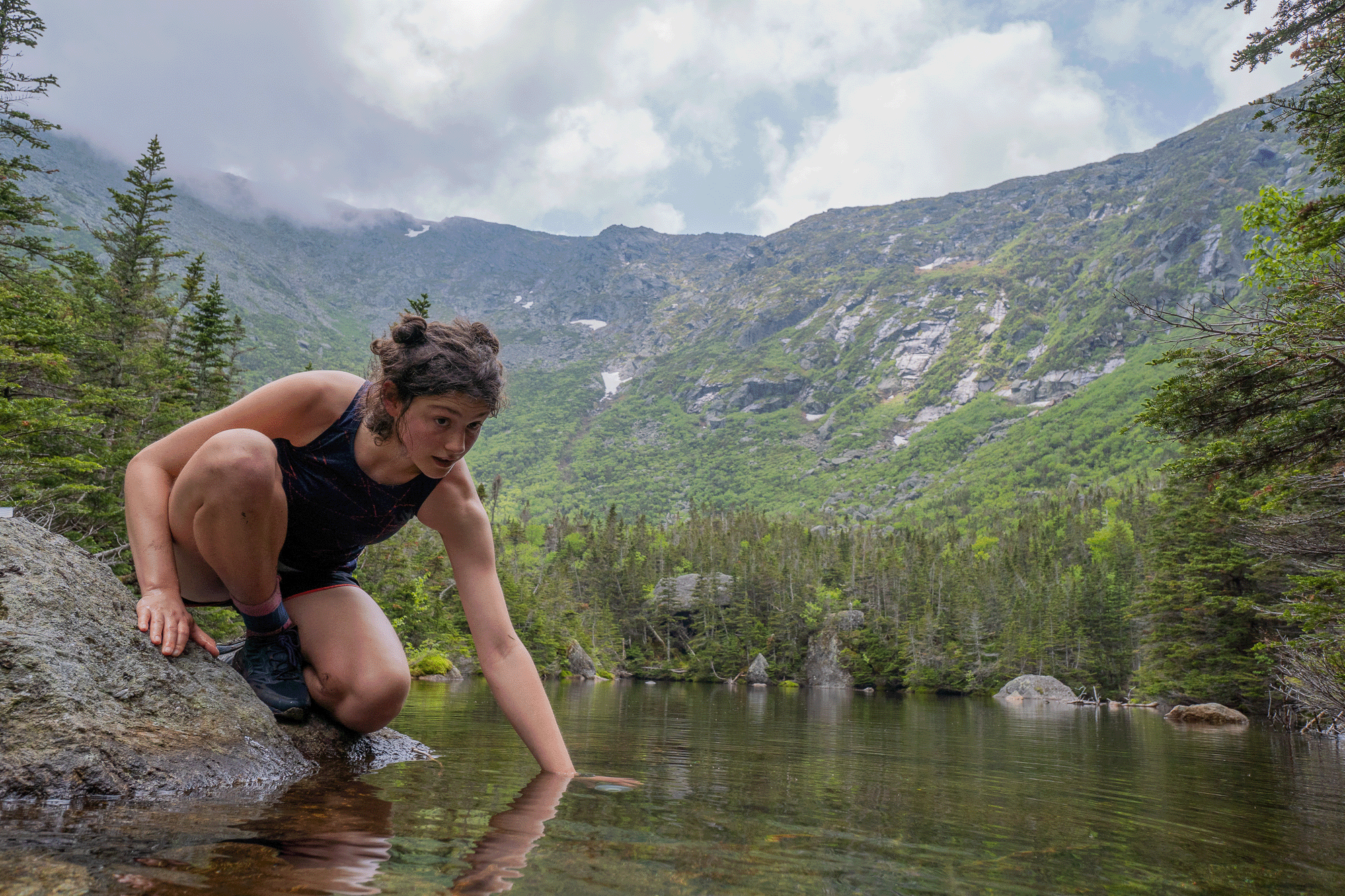

Shyevitch samples a stream in the Great Gulf, New Hampshire. Courtesy of Maya Shyevitch.
Maya Shyevitch
Base Research Intern, Pinkham Notch
My name is Maya Shyevitch and I’m the 2023 Base Research Intern at Pinkham Notch. During the busy summer field season, I can often be found stream sampling (as pictured here in the Great Gulf) or checking in on the many plant plots in Crawford and Pinkham Notches. Both activities contribute to AMC’s long-term monitoring projects in the area. Stream, rain, and cloud samples help us learn about water and air quality, and monitoring the annual cycles of local flora teaches us about how different species are responding to climate change. I also work with backcountry hut naturalists and citizen scientists to get more people involved in AMC research.
If you’d like to help us study plants from Georgia to Maine, you can download iNaturalist and join our projects: Flowers and Fauna Along the Appalachian Trail Corridor, Northeast Alpine Flower Watch, and New England Trail Nature Watch. Just by stepping out into your backyard, you can learn about local plants while contributing to science!
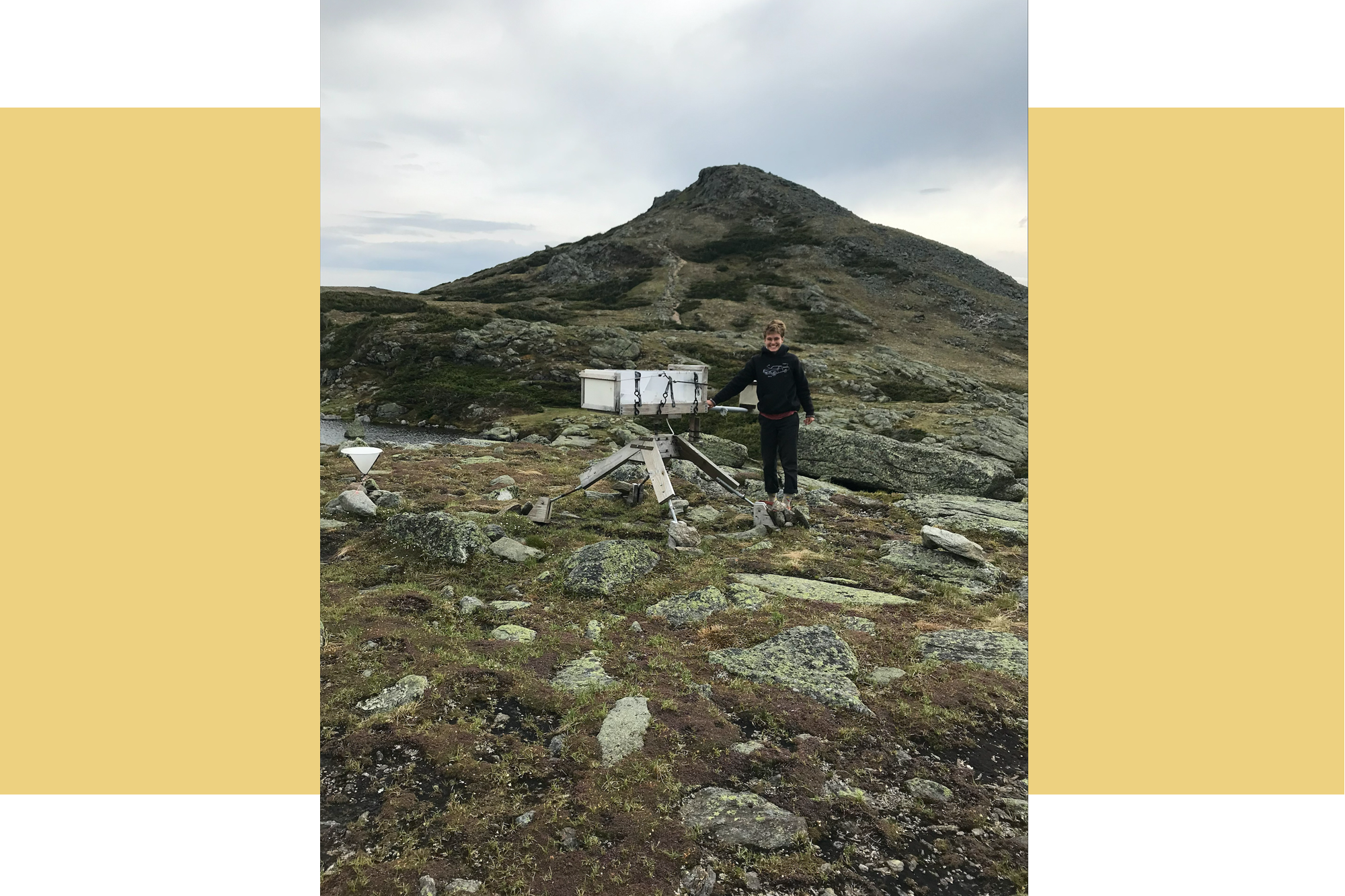

Larz von Huene collects cloud samples. Courtesy of Larz von Huene
Larz von Huene
Lakes of the Clouds intern
From the AMC Instagram page:
In light of recent smoky conditions in our region, it’s more relevant than ever to collect, analyze, and share air quality samples as we experience increasingly variable weather and summer wood smoke events.
Fortunately, Larz von Huene, AMC’s Research Intern, is collecting cloud samples this season while based at AMC Lakes of the Clouds Hut in New Hampshire. Larz shares:
“Clouds form around small particles, like those created by wood smoke, that can travel long distances and, if conditions are right, result in cloud formation. My job is to catch the clouds and rain that arrive here at Lakes to measure how much pollution can be deposited into the lakes, streams and soils.”
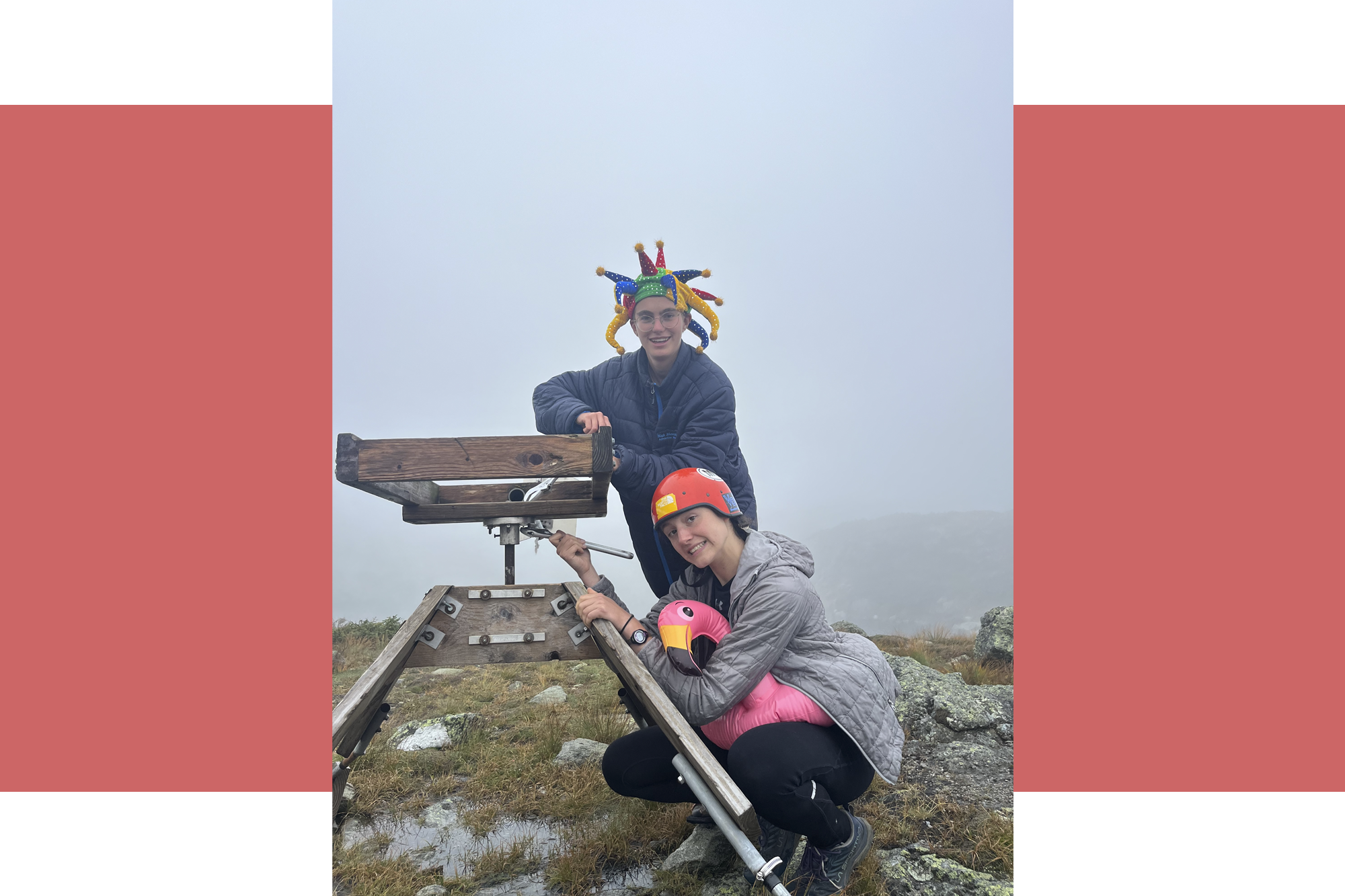

Von Huene and Shyevitch with a cloud catcher.